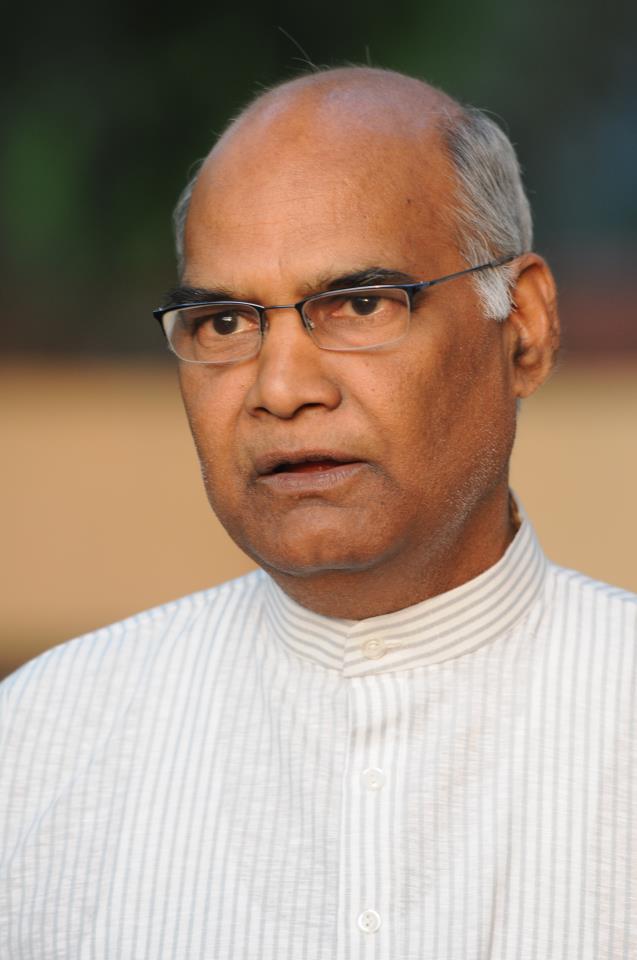President Kovind gives assent to six legislation including Maritime Claims Jurisdiction Act
August 13, 2017
New Delhi: In three weeks since he took over, President Ram Nath Kovind has given assent to six legislations, including the one that extends the jurisdiction of trial in cases of maritime claims, arrests and detentions of ships to various courts which would impact Gujarat.
The Admiralty (Jurisdiction and Settlement of Maritime Claims) Act, 2017, which got the presidential assent recently, repeals two archaic laws — 156-year-old Admiralty Court Act, 1861, and 127-year-old Colonial Courts of Admiralty Act, 1890.
A bill in this regard was cleared by the Rajya Sabha on April 24. The Lok Sabha passed the bill on March 10.
The colonial era legislations came into force when the country had only three major ports — Bombay, Calcutta and Madras. So, at present also, admiralty disputes could be decided by the high courts in these cities only.
The new Act extends jurisdiction for maritime claims and vests it with the respective high courts and over the territorial waters of their respective jurisdictions.
The legislations aims to establish a legal framework for consolidation of related laws to replace the age old archaic laws with modern Indian legislation and to confer admiralty jurisdiction on all High Courts of the coastal states of the country.
The legislation repeals five different Admiralty Acts which are 126 to 177 years old. The legislation provides for prioritization of maritime claims and maritime liens while providing protection to owners, charterers, operators, crew members and seafarers at the same time.
As per the new legislation, High Courts of all the coastal states shall exercise admiralty jurisdiction over maritime claims which include several aspects not limited to goods imported and chattel as earlier, but also other claims such as payment of wages of seamen, loss of life, salvages, mortgage, loss or damage, services and repairs, insurance, ownership and lien, threat of damage to environment etc. The Bill accords highest priority to payment of wages of the seafarers. The legislation also provides for protection against wrongful and unjustified arrest and has provision for transfer of cases from one High Court to other High Court.
The President has also approved the Right of Children to Free and Compulsory Education (Amendment) bill, 2017.
Eleven lakh teachers appointed till March 2015 under the Right to Education (RTE) Act will now get time till 2019 to acquire the prescribed minimum qualifications for firming up their appointments, as per the new Act.As per the Right of Children to Free and Compulsory Education Act, which came into effect from April 1, 2010, these teachers were to acquire minimum qualifications within five years i.e. by March 31, 2015.
The President also approved the Collection of Statistics (Amendment) bill, 2017, which empowers the Centre to collect socio-economic and other statistical data from Jammu and Kashmir.
A bill to amend Collection of Statistics Act, 2008, was passed by the Rajya Sabha on July 26 even as various opposition parties had objected to it saying it was not proper in view of Article 370 which grants special status to Jammu and Kashmir. The Lok Sabha approved the bill in April.
The Indian Institutes of Information Technology (Public- private Partnership) bill, 2017, the National Institutes of Technology, Science Education and Research (Amendment) bill, 2017 and the Footwear Design and Development Institute bill, 2017, have also got the presidential approval.
The Indian Institutes of Information Technology (Public- Private Partnership) Act, 2017 grants statutory status to the Indian Institutes of Information Technology (IIITs) and declare them as ‘Institutions of National Importance’. There are 15 IIITs across the country.The National Institutes of Technology, Science Education and Research (Amendment) Act, 2017 gives the status of national importance to the Indian Institute of Science Education and Research (IISER) at Tirupati (Andhra Pradesh) and Berhampur (Odisha).
The Footwear Design and Development Institute Act, 2017, empowers the Footwear Design and Development Institute (FDDI) in Uttar Pradesh’s Noida to grant degrees and diplomas.It also declares the FDDI as an institution of national importance for the promotion and development of quality and excellence in education, research and training in all disciplines relating to footwear and leather products design and development.
Recent Stories
- Shah in Anand hails Salt Cooperative Initiative of Kutch, predicts Rs. 1 lakh crore Turnover of Amul next year
- Section 144 imposed after arrest of AAP MLA Chaitar Vasava
- 24 hours rainfall data from across Gujarat; Bhiloda tops, Surat City had over 4.56 inch rain
- Chaturmas 2025 starts today across Gujarat; will end on 2nd November
- Gauri Vrat Goro begins across Gujarat ; Jaya Parvati Vrat from July 8
- Stray bull attacks man in Bhachau, Kutch; CCTV footage surfaces
- In pictures: Upcoming Five-Star Hyatt Hotel at GIFT City, Gujarat
